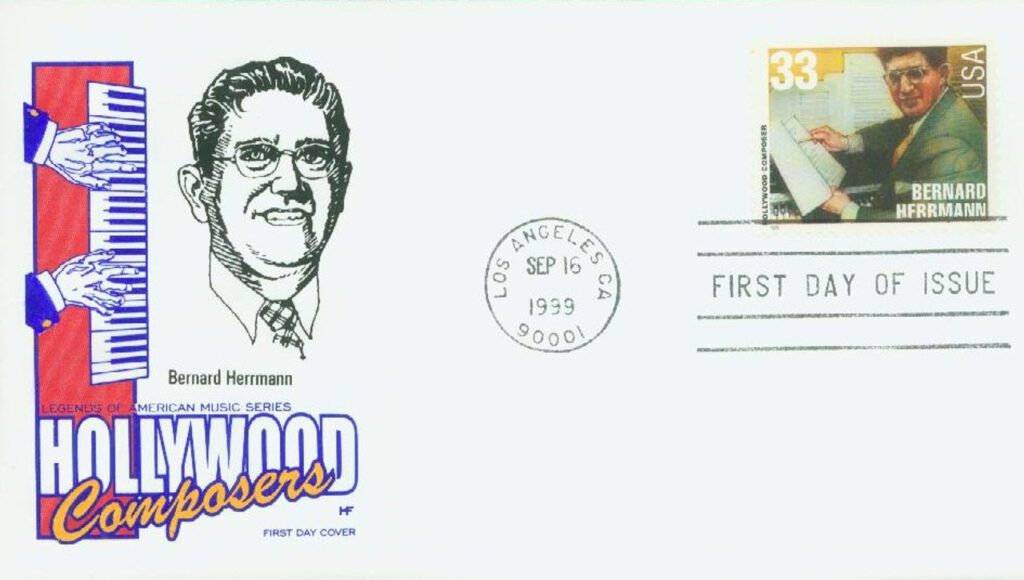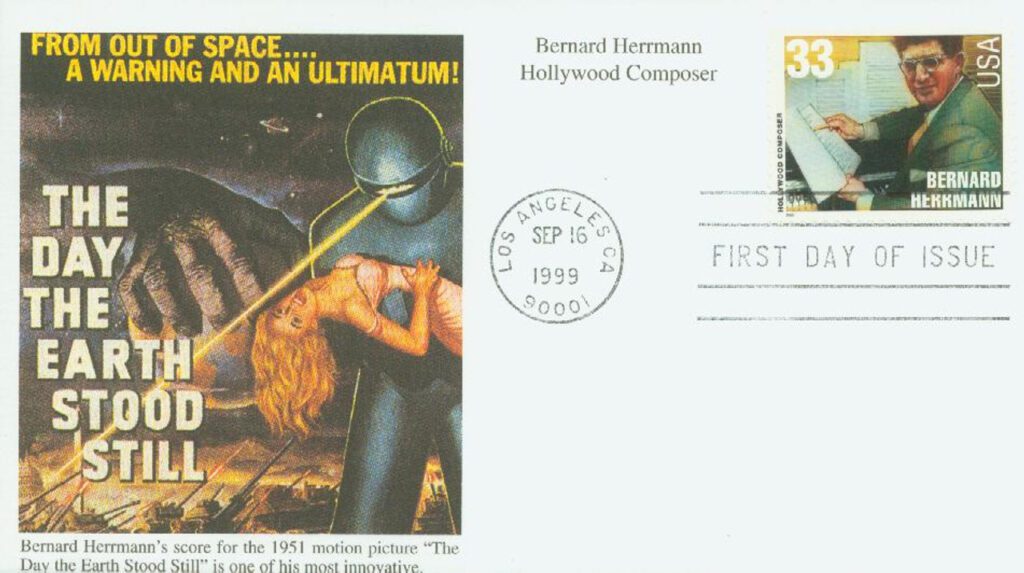Composer Bernard Herrmann was born Maximillian Herman on June 29, 1911, in New York City, New York. He famously worked with Orson Welles, Alfred Hitchcock, and Martin Scorsese, and is often considered one of the most influential and pioneering composers in cinema history.
Herrmann’s father encouraged his interest in music from a young age, taking him to the opera and sending him for violin lessons. When he was 13, Herrmann won a prize for music composition and at that time decided to pursue music as a career. He attended New York University and the Juilliard School and formed his own orchestra, the New Chamber Orchestra of New York, when he was just 20 years old.

Herrmann began working as a staff conductor at the Columbia Broadcasting System (CBS) in 1934. He was made music director of the Columbia Workshop within two years. In that role he arranged music for experimental radio dramas. Nine years later he became chief conductor of the CBS Symphony Orchestra. In this position, he broadcast concert music across the US, introducing Americans to more new music than any conductor before him. Herrmann received several awards and grants for the programs he arranged and for his promotion of unknown composers. He also wrote several concert pieces over the years including a symphony, a Wuthering Heights opera, a cantata for Moby Dick, and a piece dedicated to the fallen soldiers of World War II.
Herrmann met Orson Welles during his time at CBS and wrote or arranged several of his radio shows, including his famed 1938 The War of the Worlds broadcast. In 1941, he wrote the score for his first film, Welles’s Citizen Kane. He received an Academy Award nomination for best score for that film. He competed against himself for that award, and ended up winning his only Academy Award for The Devil and Daniel Webster.

In the 1950s and 60s, Herrmann scored seven films for Alfred Hitchcock, including The Man Who Knew Too Much (1956), Vertigo (1958), and North by Northwest (1959). The violin “screams” he created for the shower scene in Psycho (1960) are still recognizable today. The music Herrmann created for film is known as being unorthodox. He used short, identifiable themes in place of longer melodies. He also insisted on complete creative control of the score. Hitchcock often invited him to the set to determine the length of his music and would shorten or extend scenes to match Herrmann’s music. Their collaboration came to an end when they disagreed on how to score Torn Curtain.
Herrmann scored several other films in the 1950s and 60s, including The Day the Earth Stood Still (1951), The 7th Voyage of Sinbad (1958), Journey to the Center of the Earth (1959), The 3 Worlds of Gulliver (1960), Mysterious Island (1961), and Jason and the Argonauts (1963). Herrmann also scored several episodes of The Twilight Zone and Have Gun – Will Travel. In 1975, he scored his final film, Martin Scorsese’s Taxi Driver. He died on December 24, 1975. Herrmann scored more than 40 films during his career. In the years since his death, his music has been re-used or re-worked for several modern films and other projects. He also inspired a generation of composers.
Listen to some of Herrmann’s most recognizable film scores.
| FREE printable This Day in History album pages Download a PDF of today’s article. Get a binder or other supplies to create your This Day in History album. |
Discover what else happened on This Day in History.





Herrmann’s score to “The Day the Earth Stood Still” lent mystery and gravitas to a genre (science fiction) that had not enjoyed much respect. Some seventy years later, Herrmann’s music still defies much of the campy music that preceded his–or the poor imitations that followed.
There have been other composers of film scores. I have been a fan of film scores probably since the WWII fiction drama: “Where Eagles Dare” My all
time favorite which I interpreted some of the music to play on the trumpet,
is Cecile B De Miles’s: “The Ten Commandments “. The scorer of the film was Elmer Bernstein, who wrote the score for the TV Western: “The Big Valley”,
“The Summer of 42”, and other shows.
Thanks again for these wonderful history stories I enjoy daily. Herrmann was so unique at musical scoring as I would recognize his “voice “ , musical voice that is and it was an important part of the movie that really inhanced my enjoyment of the movie.